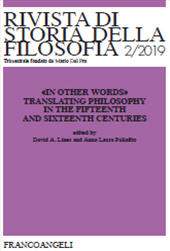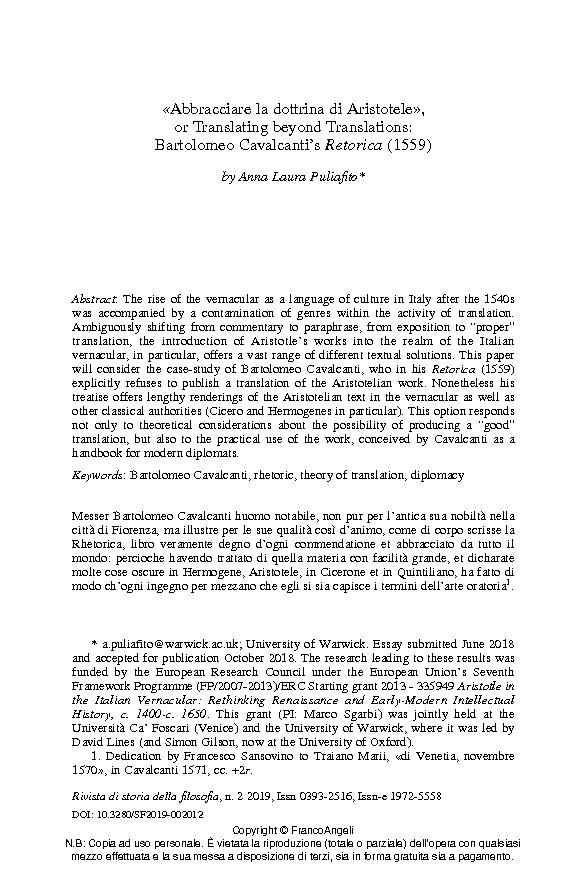Abbracciare la dottrina di Aristotele, or Translating beyond Translations : Bartolomeo Cavalcanti's Retorica (1559)
377-390 p.
The rise of the vernacular as a language of culture in Italy after the 1540s was accompanied by a contamination of genres within the activity of translation. Ambiguously shifting from commentary to paraphrase, from exposition to "proper" translation, the introduction of Aristotle's works into the realm of the Italian vernacular, in particular, offers a vast range of different textual solutions. This paper will consider the case-study of Bartolomeo Cavalcanti, who in his Retorica (1559) explicitly refuses to publish a translation of the Aristotelian work. Nonetheless his treatise offers lengthy renderings of the Aristotelian text in the vernacular as well as other classical authorities (Cicero and Hermogenes in particular). This option responds not only to theoretical considerations about the possibility of producing a "good" translation, but also to the practical use of the work, conceived by Cavalcanti as a handbook for modern diplomats. [Publisher's text]
Forma parte de
Rivista di storia della filosofia : LXXIV, 2, 2019-
Artículos del mismo número (disponibles individualmente)
-
Información
Código DOI: 10.3280/SF2019-002012
ISSN: 1972-5558



